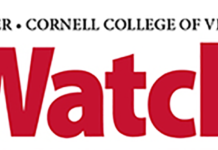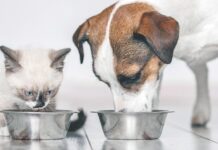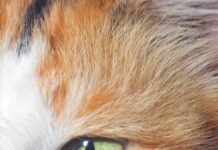Q. Dear Elizabeth: I work at a large no-kill animal sanctuary with special-needs cats. Often when one becomes ill and stops eating, we tempt him or her with people food like baby food or boiled chicken.
I have heard a lot of conflicting things about feeding cats baby food or straight meat. Someone recently told me that a good all-meat baby food and straight chicken are nutritionally complete, but I have read in a few places that cats need other nutrients like taurine and vitamins A and D or they will get very sick. Does straight meat provide full nutrition for cats? In the wild, how do cats get full nutrition if meat does not provide it all? What is the best kind of food for our dear kitties? Thank you for considering these questions!
A. First, let me say thank you for your kind and generous dedication to my feline brethren in your work at the sanctuary. People like you make the world a better place for kitties … which we all know makes the world a better place!
In terms of optimal food for my brothers and sisters in your shelter, my best recommendation would be to provide a commercial diet that is specifically formulated to provide all of a cat’s nutritional requirements as soon as is possible. Bruce G. Kornreich, DVM, Ph.D., DACVIM, Associate Director of the Cornell Feline Health Center, agrees. Commercial diets that are nutritionally balanced for cats will carry a statement from the Association of American Feed Control Officials indicating that they fulfill established nutritional requirements for cats. Cats require a balance of a number of nutrients in their diet, including amino acids, fatty acids, carbohydrates, vitamins, minerals and water, to survive. Some of these nutrients can be produced by the cat’s own metabolism, provided that the appropriate precursors are provided, while others must be provided in the diet.
Nutrients that must be provided in the diet are termed “essential” nutrients. For example, there are 10 amino acids, the building blocks from which proteins are produced, that cats cannot synthesize on their own, and that must be provided for them in the diet. Taurine is one of these essential amino acids, and if it is not provided in the diet, serious heart, eye and/or immune system problems may occur.
Arginine is another essential amino acid for cats, and if sufficient arginine is not provided, toxic levels of ammonia may build up in the blood. Vitamins are necessary for many metabolic processes and deficiencies may result in a number of health problems for cats. Vitamin A deficiency, for example, may cause problems with vision and bone development and density, while a diet low in vitamin K may predispose cats to bleeding disorders.
Minerals are important as well. Calcium, for example, is vital for normal bone development, muscle contraction, blood clotting and transmission of electrical signals through the heart and nervous system. Fatty acids provide crucial building blocks for the production and maintenance of cell membranes throughout a cat’s body, and diets deficient in fatty acids may result in significant health problems for cats. Also understand that while deficiencies of various nutrients may be unhealthy for cats, diets that are too high in certain nutrients may also cause illness.
The problem with feeding cats diets of only meat is that they do not provide all nutrients necessary to maintain good health. Cats in the wild fulfill their nutritional requirements by eating not only the meat (muscles) of their prey but also the entrails and bones of prey species. These non-muscle components of prey provide the additional nutrients that muscles lack, thereby balancing the diet. It’s amazing to think that to a cat, a mouse is a perfectly balanced diet; and since we cats are so smart, we know what’s good for us!
This is why we were domesticated in the first place, to eat our perfect diet (i.e., mice and other vermin) and to protect our human’s diet (grain) that the vermin like to feed on at the same time! Nature is just fascinating, isn’t it? It’s OK to use meat or meat based products (like baby food) to entice cats to eat, but these products should not take the place of a well balanced diet for extended periods of time.
Another important point is that if you are dealing with sick cats, their caloric requirement may be increased, sometimes significantly. Feeding the amount of food that you would feed to a healthy cat to a sick kitty may result in weight loss and deterioration of physical well-being.
Thank you again for all of your great work on behalf of the feline contingency. If you need further advice and specifics, I recommend that you consult with your veterinarian and/or a veterinary nutritionist. The website for the American Academy of Veterinary Nutrition (aavn.org) is a great source of information and contacts.
-Best regards, Elizabeth



